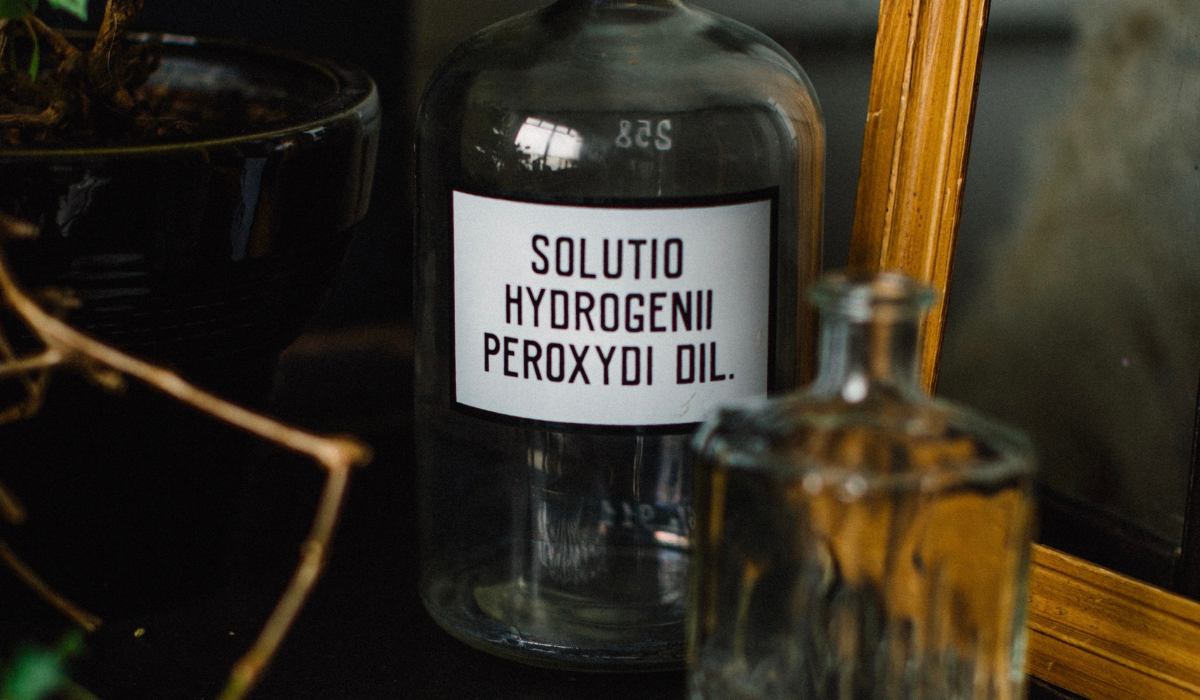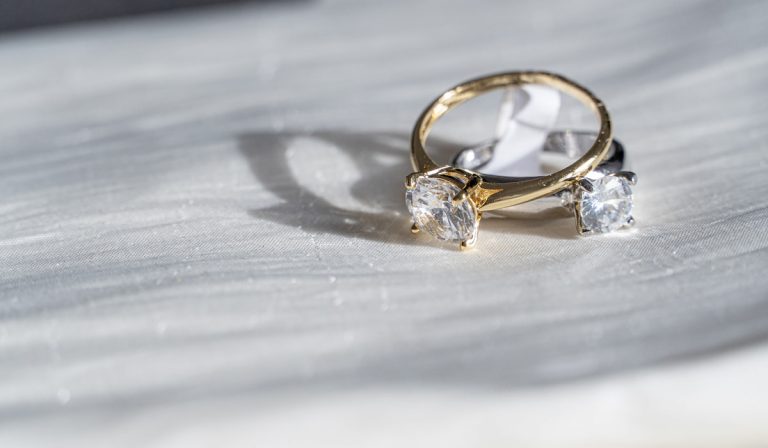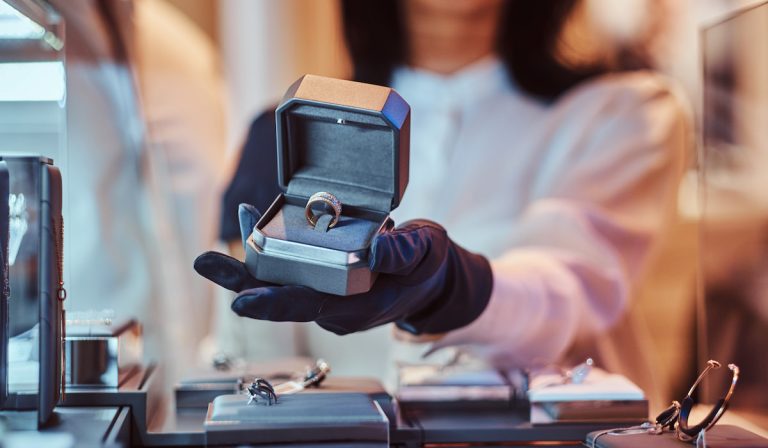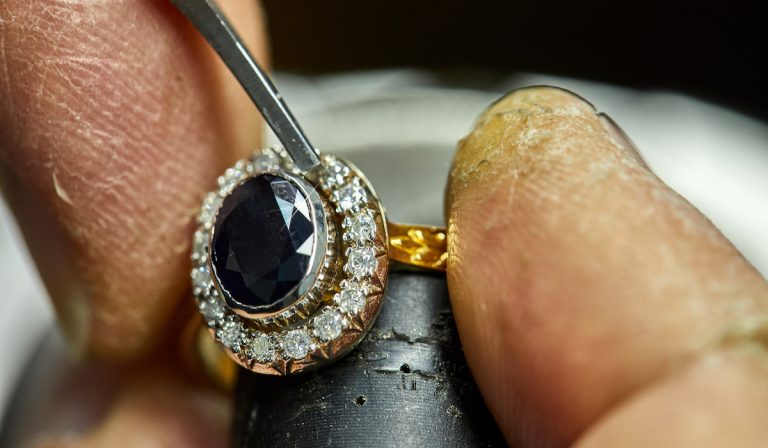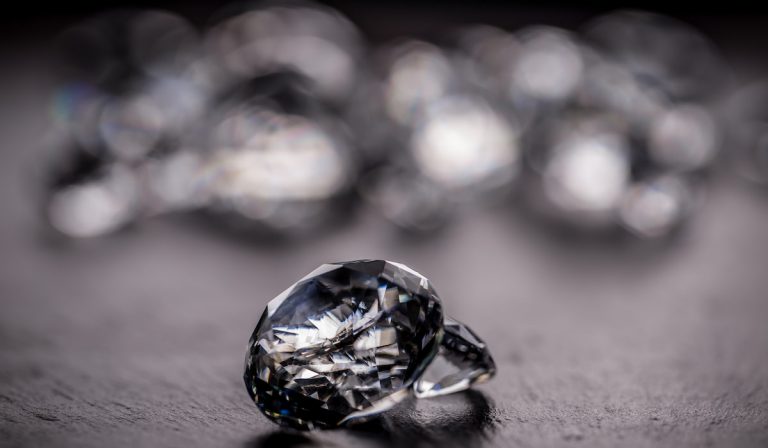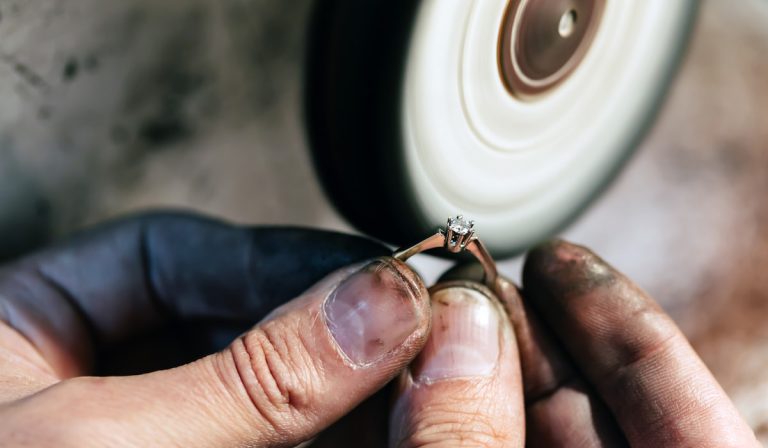Does Hydrogen Peroxide Damage Gold? (12 Myths and Facts)
If someone told you cleaning your jewelry with hydrogen peroxide would damage it, you’d probably try to find another way to clean your precious and beautiful pieces. When you consider the financial or sentimental value attached to your gold jewelry, you likely don’t want to take chances.
But is it really true? Does hydrogen peroxide damage gold? In this article, we give an answer to this question while debunking some myths and endorsing some truths.
Myths
Here are some common myths that you may have heard about hydrogen peroxide. You may be surprised that some of the things you’ve believed all your life are not actually true.
Hydrogen Peroxide Damages Gold – MYTH!
As long as you clean gently, hydrogen peroxide will not damage your gold jewelry. Hydrogen peroxide can clean all types of gold easily as long as you apply gentle abrasive force.
If you clean your gold with hydrogen peroxide, the hydrogen peroxide must be of low concentration. Low-concentration hydrogen peroxides are those typically available at pharmacies (around 3-6%).
Of course, hydrogen peroxides of higher concentrations are not immediately available. But if somehow you had access to some, it is not ideal for cleaning your gold.
Hydrogen Peroxide Reacts With All Metals – MYTH!
The myth that hydrogen peroxide damages gold may have come from the thought that hydrogen peroxide reacts with all metals. However, this is not true.
While hydrogen peroxide can react with metals, it does not easily react with stable metals like gold and silver. Besides, hydrogen peroxide does not react with metals under normal conditions.
In fact, to trigger a reaction with some metals (like silver), you have to heat it up and add a catalyst. You may even need hydrogen peroxide of higher concentrations to see any reaction with metals.
So, you don’t really need to worry about hydrogen peroxide damaging metallic objects. Under normal circumstances, it is not as corrosive as you might think.
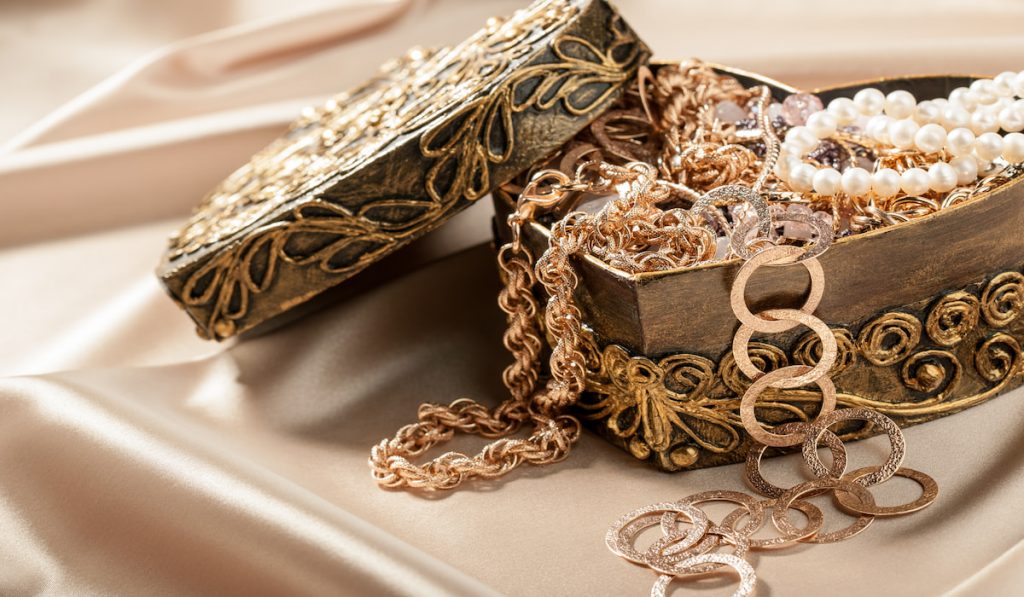
Hydrogen Peroxide Bubbles Are a Sign of Reaction or Damage to Your Jewelry – MYTH!
You may be alarmed when you notice bubbling or foaming while cleaning your gold with hydrogen peroxide. Well, you shouldn’t be.
The bubbles formed when hydrogen peroxide comes in contact with your jewelry are not a sign of a reaction between the jewelry and hydrogen peroxide.
On the contrary, the bubbles form as hydrogen peroxide kills bacteria on the jewelry.
The bacteria contain an enzyme that breaks hydrogen peroxide into water and oxygen. So, the bubbles you see are caused by oxygen escaping from the surface of your jewelry.
Facts
Here are some truths about hydrogen peroxide.
Mixing Baking Soda With Hydrogen Peroxide Cleans Better – FACT!
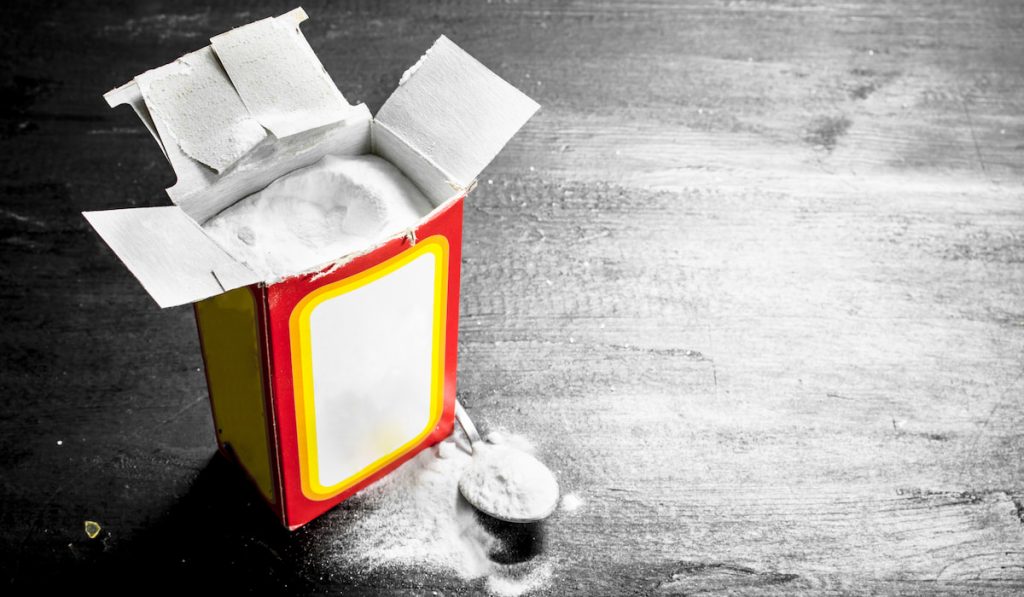
For better results, add a few drops of hydrogen peroxide to baking soda dissolved in water when cleaning your gold.
The combination of these two cleaning agents offers better results than either of them used alone.
Besides baking soda, you can also mix hydrogen peroxide with cleaning agents like vinegar and detergent.
Hydrogen Peroxide Also Disinfects Your Jewelry – FACT!
Besides acting as a cleaning agent, hydrogen peroxide can also act as a disinfectant.
Considering that every piece of your jewelry touches your skin when worn, keeping it free of germs is vital. This is especially true for piercing pieces like earrings.
Earrings that carry germs are very likely to cause ear infections. But if you clean them with hydrogen peroxide, this likelihood drops.
When decontaminating jewelry with hydrogen peroxide, ensure you wash and disinfect your hands before you start. If you don’t, you may just re-contaminate jewelry pieces with the same germs you washed off of them. Of course, that makes the whole process futile.
You Can Clean Your Gold With Hydrogen Peroxide in More Than One Way – FACT!
When cleaning gold jewelry with hydrogen peroxide, you can wipe it with a cotton ball, pad, or cotton swab. Alternatively, you can dip the piece of jewelry in hydrogen peroxide directly.
If you have a cotton ball, cotton swab, or pad, dip it in the hydrogen peroxide. Then run it across the length of the jewelry. Reach into the crevices to ensure you clean thoroughly.
While cleaning, you may soak the cotton or pad with more hydrogen peroxide if necessary. Then once you are done cleaning, drop the jewelry in ordinary water for a few minutes to rinse it.
You can dip your jewelry in hydrogen peroxide directly if it needs a thorough cleaning. You may also do this if you prefer not to wipe it with a swab or cotton ball.
When you dip the jewelry directly in hydrogen peroxide, you may leave it to soak for 10-15 minutes. However, if the stain is very intense, you may leave it the hydrogen peroxide overnight.
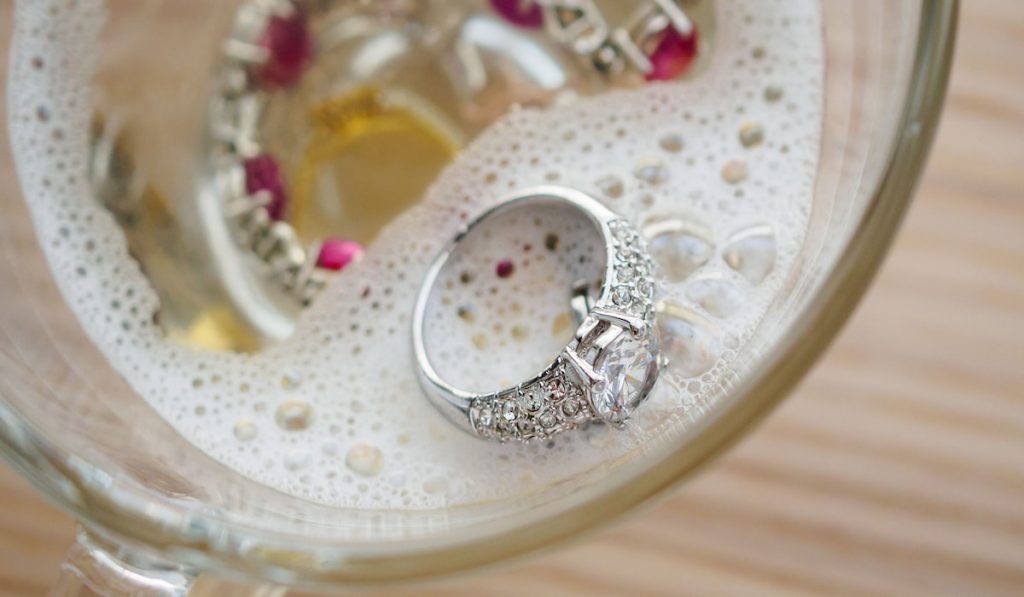
You Do Not Need Harsh Abrasion to Clean Your Gold Jewelry – FACT!
You might be tempted to scrape your jewelry while cleaning it with hydrogen peroxide for better results. But resist the urge to do this.
If you apply harsh abrasive force to any type of jewelry while cleaning, you will damage it. So, if you ever have to scrub your jewelry, use microfiber materials or soft-bristled brushes.
If those two options do not give you the desired results, try soaking the jewelry in the cleaning agent for longer.
Do Not Try to Clean Your Gold With Boiling Water – FACT!
While ultrasonic jewelry cleaners use heat and sound waves to get dirt off jewelry, you shouldn’t try to replicate their action with boiling water.
Ultrasonic cleaners emit regulated heat, so they never get as hot as the boiling point of water.
The gold part of your jewelry may not be significantly affected by the heat from boiling water. At worst, it may expand slightly, making the gemstones fall off.
The gemstones, however, may suffer thermal shock when you rinse them in cold water after getting them out of boiling water. When gemstones experience thermal shock, they may cleave or fracture.
Toothpaste Is Not a Good Alternative to Hydrogen Peroxide or Baking Soda When Cleaning Gold – FACT!
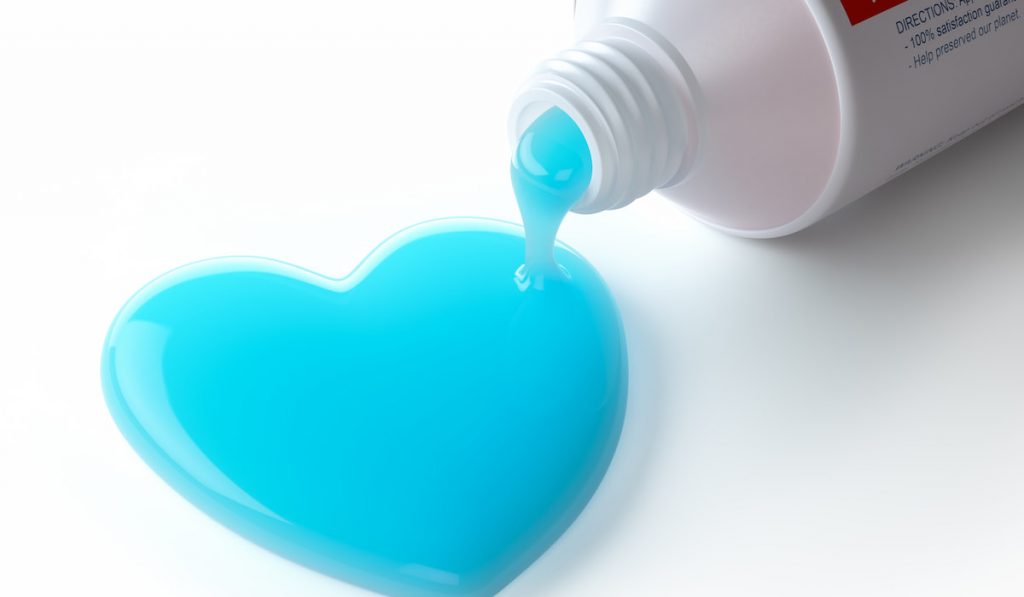
One might expect toothpaste to clean gold jewelry in the same way that it cleans teeth. However, this isn’t so. In fact, toothpaste will actually damage gold and some gemstones.
Here’s why: toothpaste has a hardness equal to or higher than that of 14k gold. So, if you use it in cleaning gold, you will leave scratch damages on the jewelry.
Besides gold, toothpaste has a higher hardness than gemstones like pearls. Plus, even when used on gems harder than it, toothpaste may still leave some surface abrasion. So, avoid using toothpaste on any type of jewelry.
Alcohol Is Not an Ideal Substitute to Hydrogen Peroxide, Vinegar, Ammonia, or Baking Soda – FACT!
Alcohol might help to remove grease from the surface of your jewelry. However, it may leave a coating on it.
Beyond that, alcohol can cause oil-and-water-based gems like opals and emeralds to crack.
Chlorine Based Cleaning Agents Are a No-No When Cleaning Gold Jewelry – FACT!
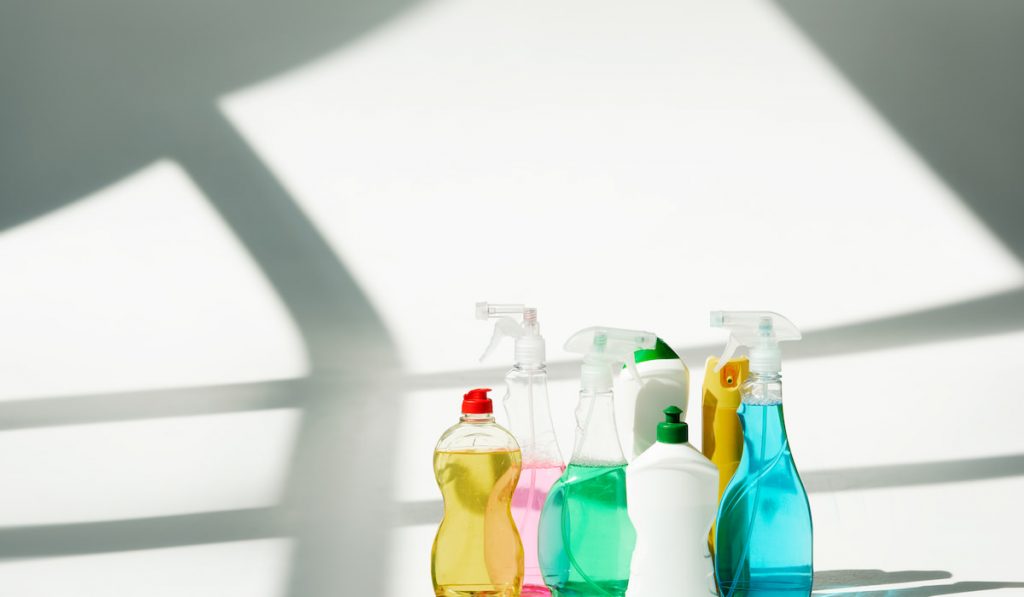
Never ever use chlorine-based cleaning agents to clean gold jewelry or any type of jewelry.
While pure gold (24k gold) may not be easily affected by chlorine, mixed gold would be affected.
Chlorine will break down the alloys in these types of gold, making the jewelry brittle. When a piece of jewelry becomes brittle, it will break very easily.
Besides making gold jewelry brittle, chlorine may also discolor the jewelry and it can erode the polish and finish of gems on the jewelry.
So, never use any substance containing chlorine to clean your gold jewelry. Also, never get into a pool while wearing the jewelry.
You Can Clean Gold Jewelry With Dish Soap and Water – FACT!
Dish soap might seem mild, but it is a potent way of cleaning gold jewelry. As long as the dish soap does not contain chlorine and is not dissolved in hot/boiling water, it should clean your gold just fine.
Cleaning gold with dish soap and water is pretty straightforward:
- Add a few drops of the dish soap to lukewarm water.
- Soak the jewelry in the soap solution for 10-15 minutes.
- Get the jewelry out and scrub gently with a soft-bristled toothbrush or microfiber cloth.
- Rinse with ordinary water, then dry by blotting with a soft piece of cloth.
Resources
- https://www.beadnova.com/blog/2380/can-you-use-hydrogen-peroxide-to-clean-jewelry
- https://goodjewelleryguide.com/can-jewelry-be-cleaned-with-peroxide/
- https://www.designonejewelers.com/how-to-clean-jewelry/
- https://www.researchgate.net/post/Is-25-Hydrogen-peroxide-corrosive-to-metals
- http://supermomtested.blogspot.com/2013/07/using-hydrogen-peroxide-to-clean-jewelry.html
- https://www.education.com/science-fair/article/activator/
- https://learn.chm.msu.edu/vibl/content/catalase.html
- https://www.briangavindiamonds.com/news/is-chlorine-bad-for-gold/
- https://www.jewelersmutual.com/the-jewelry-box/10-jewelry-safety-tips-to-avoid-damage-to-your-jewelry
- https://www.daysjewelers.com/blog/jewelry-services/4-myths-how-to-clean-your-jewelry
- https://www.wikihow.com/Clean-Gold-Jewelry#Cleaning-Jewelry-with-Dish-Soap

